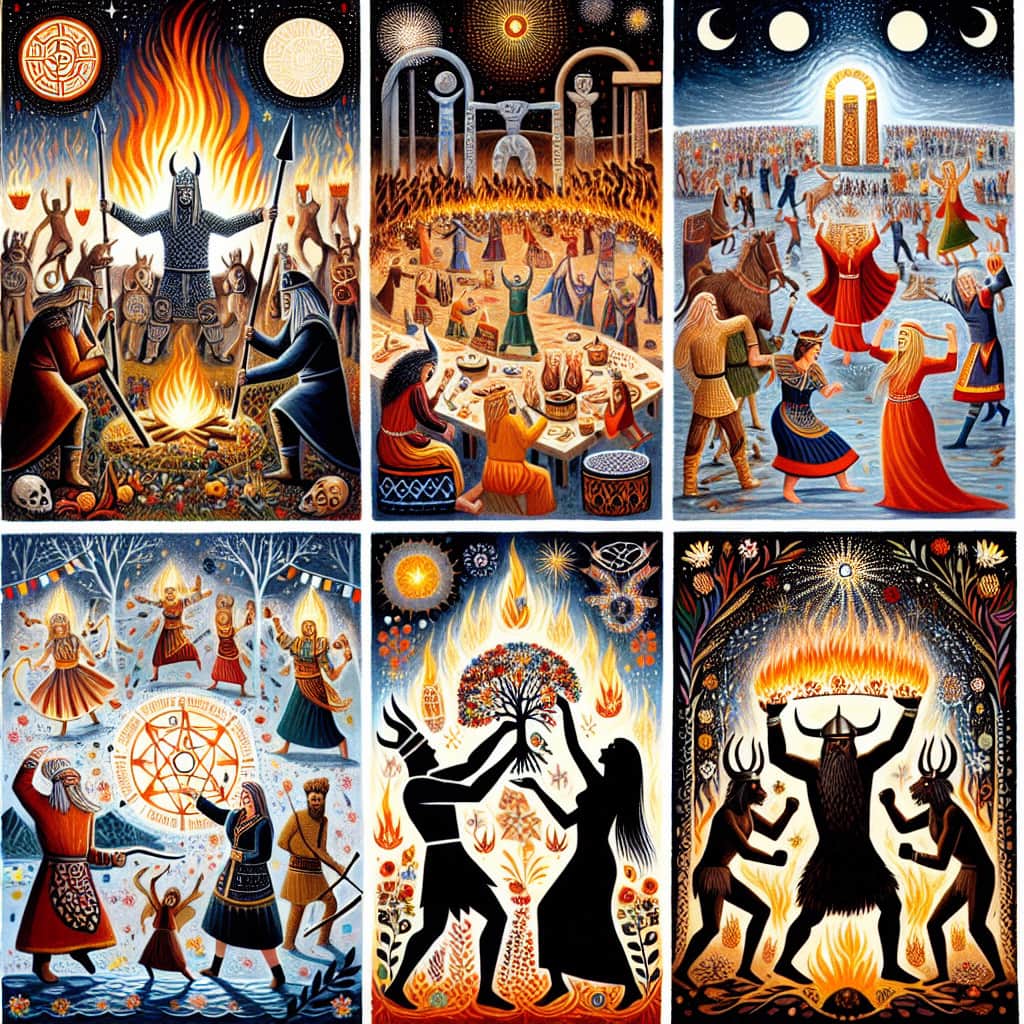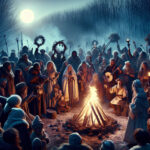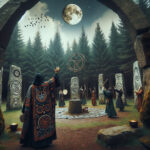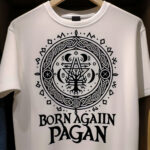As we usher in the New Year, it is important to remember the pagan origins of the holiday we celebrate every January 1st. While the holiday has evolved over the centuries, its roots can be traced back to ancient cultures where it was celebrated as a time of rebirth and renewal. In this article, we will explore the pagan origins of New Year’s Day and its significance in modern culture.
The celebration of New Year’s Day is an ancient tradition that dates back thousands of years. While many cultures today celebrate the new year with parades, music, and fireworks, the original New Year’s celebration was a much more pagan affair. The pagan origin of New Year’s Day has its roots in many different cultures from around the world. Here is a look at the history of the pagan origins of New Year’s Day.
Ancient Babylonia
The ancient Babylonians celebrated the new year with a festival that lasted for 11 days. This festival, known as Akitu, was held at the start of spring and was intended to honor Marduk, the Babylonian god of storm and fertility. During this festival, the Babylonians would make offerings to Marduk and participate in rituals to ensure the coming year’s harvest would be successful. The Babylonians believed that if they honored Marduk during Akitu, he would protect them from the forces of nature. The Babylonian calendar was based on the cycles of the moon, so the new year would fall at a different time each year.
Ancient Egypt
The ancient Egyptians had their own version of the new year festival. This festival, known as Wepet Renpet, was held at the beginning of the Nile’s annual flooding season. During this festival, the Egyptians would offer gifts to the gods and make sacrifices to ensure the coming year’s harvest would be successful. The Egyptian calendar was based on the cycles of the sun, so the new year would always fall on the same day of the year.
Ancient Greece
The ancient Greeks celebrated the new year with a festival known as the Anthesteria. This festival was held at the start of spring and was intended to honor Dionysus, the Greek god of wine and fertility. During this festival, the Greeks would make offerings to Dionysus and participate in rituals to ensure the coming year’s harvest would be successful. The Greek calendar was based on the cycles of the moon, so the new year would fall at a different time each year.
Ancient Rome
The ancient Romans celebrated the new year with a festival known as the Saturnalia. This festival was held at the end of December and was intended to honor Saturn, the Roman god of agriculture and fertility. During this festival, the Romans would make offerings to Saturn and participate in rituals to ensure the coming year’s harvest would be successful. The Roman calendar was based on the cycles of the sun, so the new year would always fall on the same day of the year.
Pagan Origins of Modern Celebrations
Today, many of the traditions associated with New Year’s Day have their roots in pagan traditions. The exchanging of gifts, the use of noise makers, and the drinking of champagne are all believed to have originated in pagan celebrations. Additionally, the idea of making resolutions for the new year is believed to have originated in ancient Greece, when people would make promises to the gods in return for a prosperous new year.
Conclusion
The celebration of New Year’s Day has its roots in many different cultures from around the world. From the ancient Babylonians to the ancient Romans, many cultures have celebrated the new year with parades, rituals, and offerings to their gods. Though the pagan origins of New Year’s Day may be lost to time, many of the modern traditions associated with the new year can still be traced back to their pagan roots.
The New Year is a time for celebration and reflection as we look forward to the year ahead. It is a time for us to come together and celebrate the end of one year and the start of a new one. While the New Year is celebrated in many different ways around the world, its origin can be traced back to pagan traditions that date back thousands of years. The ancient pagans celebrated the New Year as a time to honor their gods and goddesses, and to mark the end of one season and the beginning of another. As we celebrate the New Year, it is important to remember the pagan origins of this special holiday and to recognize the importance of honoring the past while looking forward to the future.





